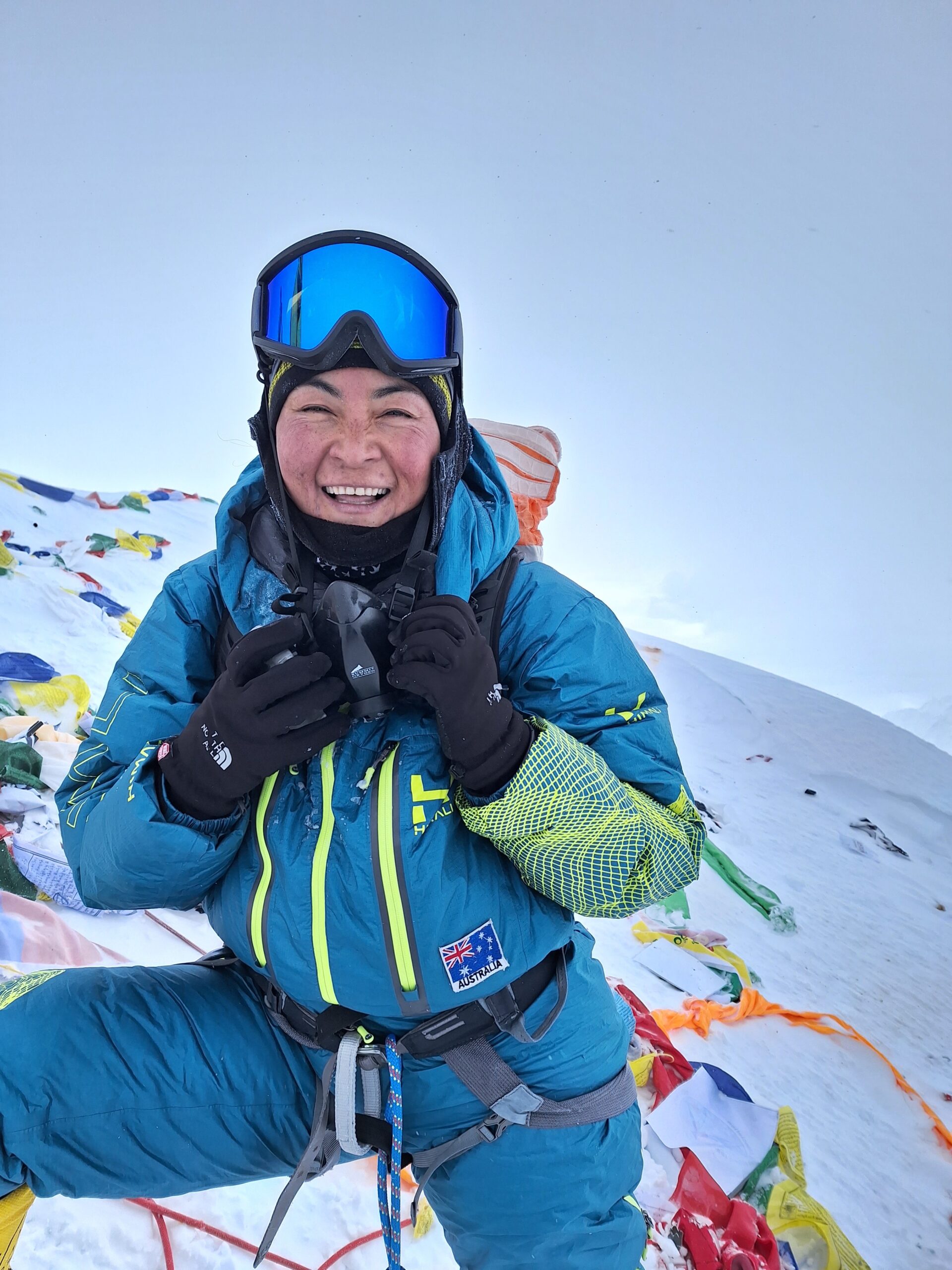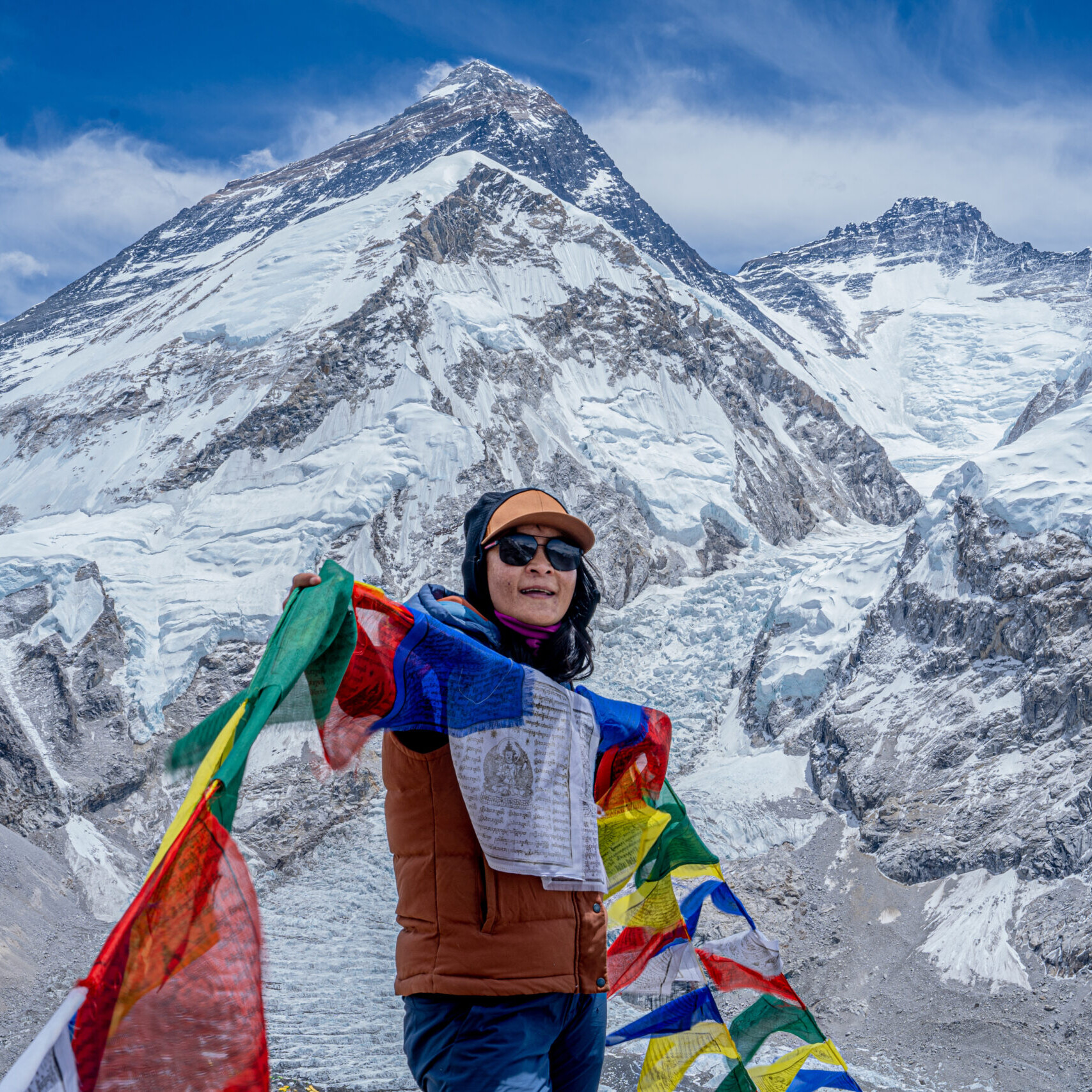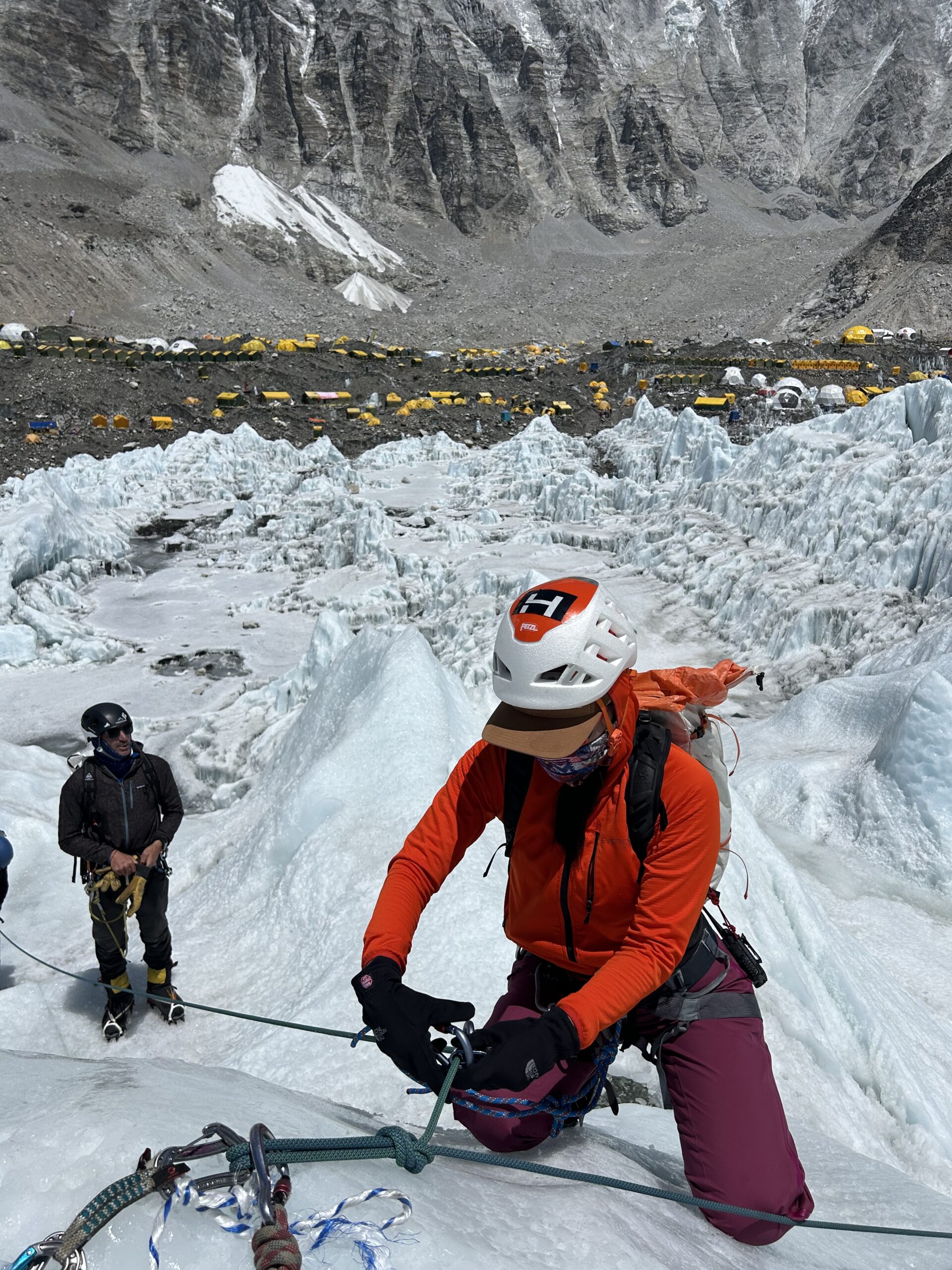Meet Phunjo Lama: Everest Speed Record Holder
Our Everest 2024 season was a massive success. Over the course of six weeks, 59 climbers and guides stood on the summit of the world’s tallest peak. Each summit was a testament to determination, grit, and strength, and we commend each and every climber and guide for their hard work and tenacity on the mountain.
One summitter may have caught your attention this year—she certainly caught ours—and we were lucky enough to have her join our climbing team. Phunjo Lama is a mountaineer, guide, and mother of two who was born and raised in Nepal, but just like many of us, she didn’t grow up climbing. Her younger years were spent in her village with her grandfather, herding yaks until 2015, when she stepped into the mountaineering world. In 2018, Phunjo reached an all-time high when she broke the women’s speed record from Everest Base Camp to the summit (time: 39 hours and six minutes), but like many great things, that record was surpassed in 2021 by an equally talented climber, Ada Tsang Yin-hung from Hong Kong, China (time: 25 hours and 50 minutes).
Fast-forward to 2024, and Phunjo is back in the Khumbu Valley with one thing on her mind—a second opportunity to test and push her boundaries in a place she knows and loves. On May 22nd, 2024, Phunjo left CTSS’ Everest Base Camp at 3:52pm and by 6:23am the following day, Phunjo was standing proudly on the summit of Mount Everest in a record time of just 14 hours and 31 minutes.
We sat down with Phunjo to chat more about her record, her daughters, and what’s in store for the future. A little sneak peek—Phunjo will be guiding with CTSS in 2025, and we are honored to have her!

What prompted you to attempt this FKT in 2018, and how did it feel when you broke the record?

In 2018, I wasn’t aiming to set a record. I felt a burst of energy and wanted to challenge myself. I was guiding my Australian friend, Samantha McMahon, who encouraged me to go for it. She played a big role in my mountaineering journey. I didn’t think it was a world record at the time, but Guinness World Records recognized it two years later. I was happy but not fully satisfied with my time due to technical problems that prevented me from climbing in my desired time.
What prompted you to attempt this FKT in 2018, and how did it feel when you broke the record?
I was very happy when my record was broken because I knew I had done good work, and that’s why someone broke it. Why reclaim it? In 2018, I was planning to summit in 20 hours, but couldn’t due to team technical issues. But this time, I got a wonderful team from CTSS, who helped me so much, and I wanted to truly break my boundaries and finally do it in a time that would satisfy me.
“I didn’t do it to set records; I just simply did it to challenge and test my limits.” – Phunjo Llama
You were born and raised in Nepal, but when did you officially start “mountaineering”?
Yes, I was born and raised in Nepal in the mountain region with yaks, but I wasn’t from a mountaineering climbing community; I was a yak herder. But to do good things in life, it doesn’t matter what community you come from! I officially started mountaineering in 2015.
What advice would you give young climbers just starting their journey?
To the young people, my suggestion is that the generation we are living in right now is an artificial generation. Even the food we eat isn’t natural. Mountains are the gifts that nature has given us, and we must balance the use of artificial and natural things in our lives. We all should connect with nature.
You’re achieving incredible feats. How does your success in the mountains impact young women?
A journalist from Vogue magazine mentioned in her blog that her little sister was asking who I was, and when the journalist told her little sister that I was the fastest woman to climb Everest in 14 hours and 31 minutes, the little sister was surprised and questioned, “Really? Can women climb that fast?” And then she replied that women could do anything if they set their mind to. I’m so glad and happy that my achievements are being spread as a message to the world that it doesn’t matter if you’re a woman or a man. Anyone can do good things in life if you set your mind to do so.

You’re joining our guiding team in 2025 on Mount Everest and taking clients for the 2026 Himalayan Spring season (note: Phunjo is already booked for 2025). For those interested in climbing with you, what do you expect from your clients, and what advice would you like to give your future clients?
I would expect my clients to be not only physically strong but also mentally strong, with the ability to focus sharply on the task at hand. I hope those who climb with me respect the Mother Goddess and understand the power she holds to heal a person spiritually. I would advise all climbers to have a balance between mental and physical strength.
Once again Phunjo, congratulations from all of us at Climbing the Seven Summits. We are incredibly proud of your success on Everest and beyond. Thank you for continuing to show us that women, especially Nepali women, belong in the mountains and inspiring our daughters, sisters, nieces, and young women across the world.
For those of you eyeing a speed ascent or something similar, Phunjo is the perfect guide to ensure you get to and from the summit safely and in record time. If you’re interested in climbing the Phunjo in 2026, your first step will be to complete our Everest Screening Questionnaire. You can also learn more by visiting our website.